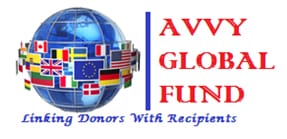Industry Updates
Latest Industry Updates – Stay Ahead in the Funding LandscapeThe world of grant funding is constantly changing, with new funding priorities, policy shifts, and emerging opportunities shaping how organizations secure financial support. Staying updated ensures that nonprofits, businesses, and researchers can adapt their strategies and position themselves for success.
Our Industry Updates Blog delivers breaking news, expert insights, and funding trends to help you navigate the competitive funding environment.
What’s Trending in the Grant Funding Space?
- Equity & Inclusion Grants on the Rise – Funders are increasingly prioritizing women-led businesses, minority-serving nonprofits, and social justice initiatives. Learn how to align your project for success.
- New Corporate Social Responsibility (CSR) Funding Initiatives – Major corporations are launching sustainability and social impact grants—find out which businesses are funding projects like yours.
- Changes in Government Funding Priorities – Public grants are shifting focus toward climate action, healthcare, and economic recovery—see how this affects eligibility.
- The Role of Technology in Grant Management – AI, automation, and blockchain are transforming grant applications, reporting, and compliance tracking.
- Donor Trends: What Funders Expect in 2025 – With increased competition for grants, funders are looking for data-driven impact reports, collaboration, and long-term sustainability plans.
Adapt to these trends and strengthen your grant strategy to maximize funding opportunities!
What’s Trending in the Grant Funding Space?
The funding landscape is constantly evolving, with new trends shaping how grants are distributed and secured. Funders are shifting their priorities toward sustainability, long-term impact, and accountability, requiring organizations to adapt their grant strategies to remain competitive.
Below, we explore four key industry insights that grant seekers need to understand in 2025.
1. The Rise of Sustainability Grants – Why Funders are Prioritizing Green Projects
With climate change becoming a global emergency, sustainability has become a top funding priority for governments, corporations, and private foundations. Grant makers are focusing on projects that address:
- Renewable Energy – Funding for solar, wind, and alternative energy projects.
- Climate Resilience & Adaptation – Grants for community-driven efforts to combat climate-related risks.
- Sustainable Agriculture – Support for climate-smart farming, agroforestry, and food security initiatives.
- Green Infrastructure & Urban Sustainability – Investment in energy-efficient cities and eco-friendly public spaces.
Why It Matters for Grant Seekers
- More funding is being allocated to climate action projects, meaning nonprofits, businesses, and research institutions should align their proposals with sustainability goals.
- Cross-sector collaboration is increasing—funders prefer projects that bring together environmental, social, and economic impact.
- Grant applicants must emphasize long-term sustainability and measurable impact, proving that their projects will deliver lasting environmental benefits.
2. How Social Impact Bonds Are Changing Nonprofit Funding
Traditional philanthropy is evolving, and Social Impact Bonds (SIBs) are emerging as a game-changing
funding model. SIBs allow private investors to fund social programs upfront, with repayment from the
government or philanthropic funders if the project meets its targets.’
How It Works:
- A nonprofit or social enterprise launches a project (e.g., reducing homelessness, improving
education, or public health). - Private investors provide funding upfront instead of waiting for traditional grants.
- If project goals are met, the government or philanthropic organization repays the investors with interest.
- If goals aren’t met, investors may take a financial loss, making project success a priority.
Why It Matters for Grant Seekers
- Nonprofits and social enterprises can access funding faster without waiting for slow grant approval processes.
- Data and performance metrics are key—funders expect clear, measurable impact results to justify funding.
- More corporations and private investors are entering the social funding space, expanding opportunities beyond traditional grants.
3. The Shift Toward Multi-Year Grant Funding – What It Means for Applicants
In the past, many grants were short-term, one-time funding cycles, forcing organizations to seek new grants constantly. Now, funders are moving toward multi-year grants, providing recipients with sustained financial support over 2-5 years or longer.
- Encourages long-term impact – Funders want to invest in lasting solutions rather than one-off
projects. - Reduces administrative burden – Multi-year grants mean less frequent applications and
reporting. - Improves financial stability – Organizations can plan strategically instead of seeking new grants
every year.
How to Secure Multi-Year Grants:
- Demonstrate long-term sustainability – Show funders that your project has a clear roadmap for
continued impact beyond the grant period. - Emphasize scalability – Funders want projects that can grow and expand over time, reaching
more beneficiaries. - Prove financial and operational stability – Funders prefer organizations that have strong
leadership, partnerships, and financial management systems.
4. New Compliance & Reporting Requirements for International Grants
International grant funding comes with new regulations and stricter compliance measures, particularly
for cross-border grants and organizations working in high-risk sectors or countries.
Key Compliance Trends in 2025:
- Increased Financial Transparency – Funders now require detailed financial reporting to prevent
fraud and misuse of funds. - Stronger Anti-Corruption Policies – Stricter due diligence is required for organizations operating
in regions with political instability. - New Reporting Standards for Impact Measurement – Funders expect real-time data on how
grants are being used and their impact on communities. - Digital Compliance Systems – Many funders now use AI-powered grant monitoring systems to
track projects.
How to Stay Compliant:
- Set up automated financial tracking systems – Ensure all transactions are documented and
easily auditable. - Adopt standardized reporting frameworks – Use globally recognized impact measurement
tools to show results. - Maintain strong governance and ethics policies – Ensure your organization follows best
practices in accountability and anti-corruption measures.
Ready to develop a standout proposal?
Let’s work together to secure the funding you need.
✉ Email: info@avvyglobalfund.org



